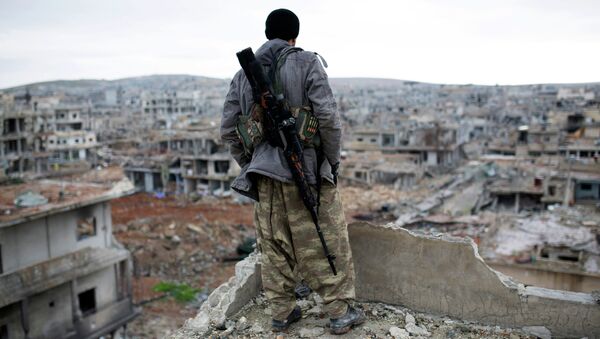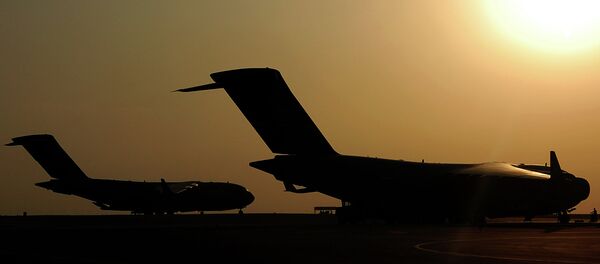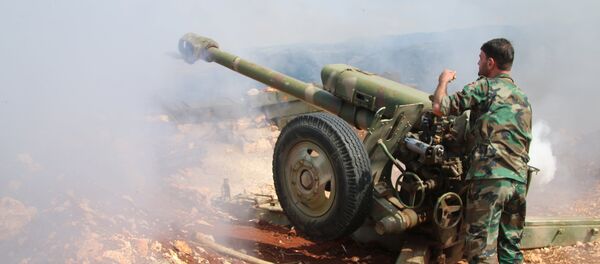Last week, the United States abandoned its ill-fated plan to train and equip "moderate" Syrian rebels. With initial hopes of creating an army of 5,000, the program only managed less than 100. Most of those ended up joining the self-proclaimed Islamic State terrorist group or other insurgent factions almost immediately.
Still, despite those failures, the Pentagon airdropped nearly 50 tons of ammunition to Syrian rebels on Monday – with no concern for who, exactly, it was arming.
"So while these forces, we do ask them, we want them to fight [IS] – I’m not prepared to talk about requirements or restrictions or pledges or anything like that," Colonel Steve Warren, a Pentagon spokesman, told reporters on Tuesday.
"What I’ll say is we’re looking for forces who are pursuing the same objectives that we have, which is the defeat and ultimate destruction of [IS]."
Warren described the question as a "moot point," since the supplies were being delivered far from territory controlled by the Syrian government.
But as many critics have pointed out, without a proper vetting process, it’s impossible to guarantee that those arms don’t end up in the hands of the very terrorists they’re meant to fight.
"Now they announced that they are supplying the Free Syrian Army with weapons, ammunition," Russian President Vladimir Putin said on Monday.
"Where is this Free Syrian Army? If they just unload and throw these arms, weapons and ammunition out of the air, where is the guarantee that it would not fall into the hands of ISIL like it was during preparation of another makeup of the Syrian army?"
Larry Johnson, a former CIA officer, also has misgivings about the delivery.
"Since the United States acknowledges that the forces it trained have fewer than ten fighters inside Syria, who is receiving these airdrops," he told Sputnik, "and how are these weapon systems being moved?"
Even if the ammo does manage to find its way into the "right" hands, it’s impossible to identify so-called "moderates."
"These organizations – al-Nusra, ISIL, Liwa al-Islam, Southern Shield, and others – all can easily swap names, be exchanged, have a slight change in command structure, but the function remains the same," Dr. Christof Lehmann of NSNBC International told Sputnik.
Still, according to Warren, vetting isn’t really necessary.
"It’s difficult to put a restriction on a bullet, obviously," he said, "but we have supplied this ammunition and this equipment to forces we are satisfied are committed to fighting ISIL."





